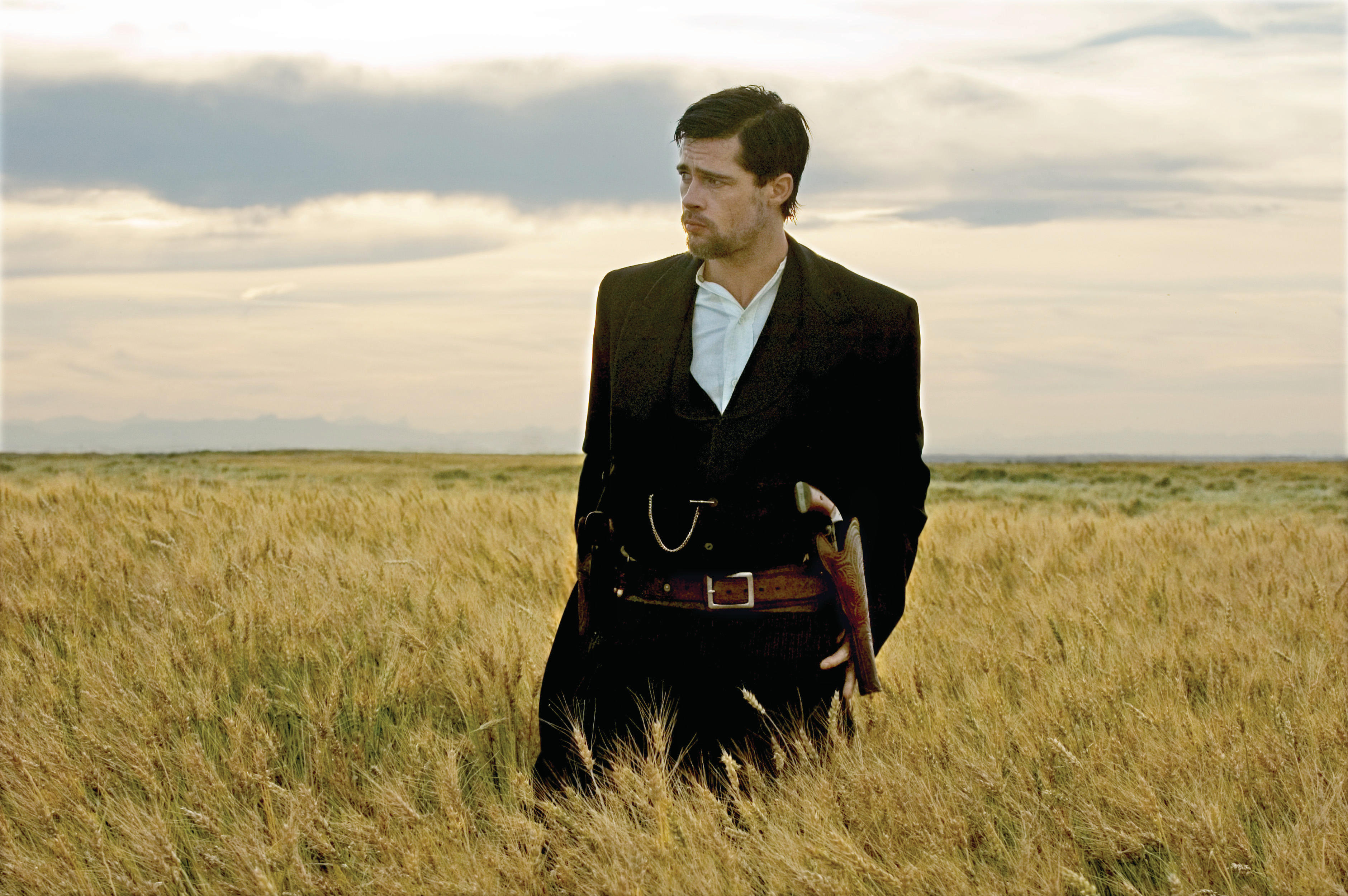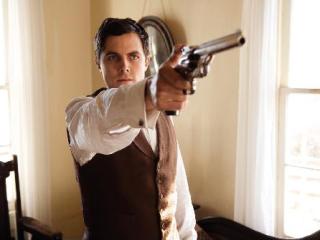“In The Atlantic’s very first issue, in 1857, the magazine’s founders — an illustrious group that included Ralph Waldo Emerson, Oliver Wendell Holmes, Henry Wadsworth Longfellow, and James Russell Lowell — declared that they would dedicate their new publication to monitoring the development, and advancing the cause, of what they called ‘the American idea.’ And for the last century and a half, the magazine has been preoccupied with the fundamental subjects of the American experience: war and peace, science and religion, the conundrum of race, the role of women, the plight of the cities, the struggle to preserve the environment, the strengths and failings of our politics, and especially, America’s proper place in the world.” To commemorate the magazine’s 150th anniversary, The Atlantic Monthly publishes The American Idea, an anthology of articles which includes republished writings by TR, W.E.B. DuBois, Albert Einstein, John Muir, Helen Keller, and Vannevar Bush. (Alas, only ten of the included articles are online.)
Tag: History
Risky Business.
As Claus von Stauffenberg, Col. Tom Cruise (sporting a funky, funky eyepatch, man) plots to kill Adolf Hitler in the new trailer for Bryan Singer’s Valkryie, also starring Kenneth Branagh, Bill Nighy, Tom Wilkinson, Terence Stamp, and Eddie Izzard. Hmmm, maybe.
Condition’s normal and you’re coming home.
Pilot of the Enola Gay, Paul Tibbets, 1915-2007. “He never apologized for unleashing the devastating explosive force and insidious nuclear radiation that leveled more than two-thirds of the buildings in Hiroshima and killed at least 80,000 people, and perhaps as many as 127,000…’I never lost a night’s sleep over it,’ Tibbets said…He said he wasn’t proud of all the death and destruction and Hiroshima, but he was proud that he did his job well. ‘I didn’t start the war,’ he said. ‘I didn’t do anything except what I was told to do; what I had sworn to do, years before, which is “Fight for the defense of this country.”‘“
Charlie Wilson Said.
Congressman Tom Hanks bends the House rules for the mujahideen in Afghanistan in the new trailer for Mike Nichols’ Charlie Wilson’s War (from the book by George Crile), also starring Julia Roberts, Philip Seymour Hoffman, Amy Adams, Emily Blunt, and Ned Beatty. Hmmm…it looks a bit like Volunteers.
Better Dead than Red.
“As political scientist Jacob Hacker has argued, the basic obstacle was nothing less than the government’s failure to have adopted a comprehensive health insurance plan decades earlier. As a result, the system that emerged by 1994 entailed such a crazy quilt of private interests — corporations, small firms, insurers, doctors, unions, HMOs, and so on — that moving all Americans into a new framework without worsening anyone’s situation had become virtually impossible.” Slate and Rutger University’s David Greenberg summarizes the history of health care reform, and of the epithet “socialized medicine.” “[T]he idea of government-run health care dates to the Progressive Era. Originally called ‘compulsory health insurance,’ it enjoyed favor in the 1910s among many quarters, including the American Medical Association…But as the debate heated up, doctors began to worry that it would hurt their incomes, and they banded with business groups like the National Association of Manufacturers to oppose reform. American entry into World War I tabled consideration of the issue, and the postwar Red Scare, Starr notes, ‘buried it in an avalanche of anticommunist rhetoric.’“
The SAT of Yore.
“Who was Alexander Hamilton — Alexander Humboldt — Alexander Pope?…Mention any work by Chaucer — Thackeray — Tennyson — Washington Irving — Whittier.” Could you have been a top-tier engineer in the Gilded Age? Try your hand at the MIT entrance exam of 1869-1870, a test in four parts. (Via Cliopatria.)
Little Rock…and what happened after.
 Fifty years ago, high above Earth, Sputnik signalled a new era for mankind. But on the ground in Little Rock, Arkansas, where nine black students were jeered mercilessly, the prospects for Humanity didn’t seem as sanguine. By way of Do You Feel Loved and to commemorate the fiftieth anniversary of the desegregation of Litle Rock Central High, Vanity Fair‘s David Margolick tells the sad but illuminating story of Elizabeth Eckford (of the Little Rock 9) and Hazel Bryan (her tormentor in the pic at right.) “[T]he picture belongs to Elizabeth and Hazel, and for them it set off a drama that has never really ended. Bound together in fame and misfortune, they have tried, separately and together, to escape the frame. After a brief and well-photographed pseudo-reconciliation 10 years ago, the two are once more incommunicado, living only a few miles, and a cultural chasm, apart.“
Fifty years ago, high above Earth, Sputnik signalled a new era for mankind. But on the ground in Little Rock, Arkansas, where nine black students were jeered mercilessly, the prospects for Humanity didn’t seem as sanguine. By way of Do You Feel Loved and to commemorate the fiftieth anniversary of the desegregation of Litle Rock Central High, Vanity Fair‘s David Margolick tells the sad but illuminating story of Elizabeth Eckford (of the Little Rock 9) and Hazel Bryan (her tormentor in the pic at right.) “[T]he picture belongs to Elizabeth and Hazel, and for them it set off a drama that has never really ended. Bound together in fame and misfortune, they have tried, separately and together, to escape the frame. After a brief and well-photographed pseudo-reconciliation 10 years ago, the two are once more incommunicado, living only a few miles, and a cultural chasm, apart.“
Ford’s Theatre.

On a Saturday in late September, the gray hours were marked by occasional rains, and Kevin, having completed his affairs of commerce the evening prior and having no social prospects on the calendar, traveled to the theater on 68th St. to bask for a day in the fulgor of the cinematograph. And so it was that, three films into his personal odyssey, he came upon Andrew Dominik’s The Assassination of Jesse James By the Coward Robert Ford, a recount of the last days of one of the Old West’s most famous killers, and an analysis of the man who laid him low. Kevin found it to be an overly protracted and ultimately uneven work, to be sure. But he also found the movie often striking and occasionally beautiful, and — even if its reach exceeded its grasp — he admired the film for its ambition, and its confidence in taking extended, leisurely digressions. Kevin applauded Dominik’s attempt to pay homage to the films of Terrence Malick and to the sprawling psychological westerns of the 1970s. That being said, he found the interminable voiceover by Basil Exposition — which often needlessly described the action Kevin could witness for himself on the screen — more than a little irritating…
Thanks, Basil, I’ll take it from here. As Assassination begins, the James gang — or, more to the point, the gaggle of local toughs Frank (Sam Shepard) and Jesse (Brad Pitt) James have assembled for one last train heist in Blue Cut, Missouri — are waiting out the day in the woods. During this stopover, the weaselly wannabe Robert Ford (Casey Affleck), nursing a lean and hungry look, tries desperately to ingratiate himself with the celebrity brothers in turn. (If we couldn’t figure out from the title what part Ford will play in all this, he seems like trouble right from the get-go: one part Mark David Chapman (“I can’t shoot him like this. I wanted to get the autograph.“), one part Sirhan Sirhan (“I have achieved in one day what it took Robert Kennedy all his life to do.”)) And yet, through sheer dogged obsequiousness, Ford eventually manages to fall in with younger brother Jesse, who seems both amused by his blatant hero-worship and nonchalant about the quality of his riding partners. So, for the next two hours plus, we follow the twists and turns of Jesse and Robert’s doomed relationship, particularly as it becomes strained by James’ increasing (and justifiable) paranoia and Ford’s own delusions of easy immortality. And, as we eventually get to that fateful day when the shot is fired (and the years beyond), Ford slowly comes to discover that it’s one thing to kill a man. It’s another to live with yourself afterward.
Assassination definitely isn’t going to be everyone’s cup of tea, and, to be honest, it’s really not at the level that its pretensions seem to warrant: The film never achieves the psychological depths it purports to plumb — Ford in particular seems a pretty straightforward nutjob — and it runs for several beats too long. (The movie should already have ended two or three times over by the time Zooey Deschanel shows up.) And, then, of course, there’s that awful narration, which comes across as screenwriting on autopilot and nine times out of ten feels jarring and unnecessary. (I assume the passages come from the book by Ron Hansen, but they don’t work here at all. They either repeat — or worse, contradict — what we’re seeing. For example, the voiceover tells us in the first ten minutes that Jesse James was a constant blinker, after which Brad Pitt stares at things with an unfaltering, steely blue gaze for three hours.)
That being said, with some wonderful cinematography by Roger Deakins (who also shot In the Valley of Elah) and a solid, colorful cast, Assassination does have its moments. It’s always grand to see Sam Rockwell, and he’s quite commendable here as Bob’s older brother Charlie. (And, while he at first appears to be a mere buffoon, there’s more to him as the movie goes along.) Deadwood‘s Garret Dillahunt also adds another finely-honed cowboy to his western repertory here: His Ed Miller, an outlaw sadly operating a few cards short of a full deck, is a far cry from both Jack McCall and Frances Wolcott, but memorable nonetheless. And there’s plenty of other good work here, including outlaw turns by Jeremy Renner (of 28 Weeks Later), Paul Schneider (looking like the lost Fiennes brother), and, of course, Affleck and Pitt, both of whom bring their A-games to the table (even if Pitt’s motivations in his final moments escaped me.) Also, I’m forced to admit, I was rather tickled by the mean old cuss they acquired to play the Governor of Missouri…

She Ain’t Like Ike.
“Bush has long taken solace in the example of Harry S. Truman, whose foreign policy was deeply unpopular in his time but is now recalled as far-sighted and sage. Now Bush is stretching the comparison still further beyond the historical pale.” After (Dem strategist?) Dubya hints that a forthcoming Clinton presidency will play Ike to his Truman, Slate‘s Fred Kaplan cries foul. If the next prez channels Eisenhower, Kaplan contends, “it would be not as a continuation of Bush’s Truman but rather as a reversal of Bush’s Dulles.“
This is Radio Sputnik.
“It was the sound of wonder and foreboding. Nothing would ever be quite the same again — in geopolitics, in science and technology, in everyday life and the capacity of the human species.” On the eve of its fiftieth anniversary (Oct. 4), the NYT remembers the Sputnik launch. “It was an unprepossessing agent of alarm. A simple sphere weighing just 184 pounds and not quite two feet wide, it had a highly polished surface of aluminum, the better to reflect sunlight and be visible from Earth…The Russians clearly intended Sputnik as a ringing statement of their technological prowess and its military implications. But even they, it seems, had not foreseen the frenzied response their success provoked.”
